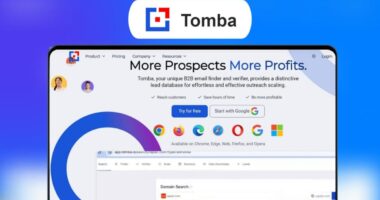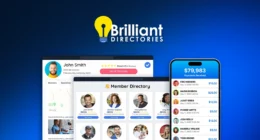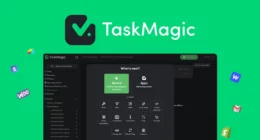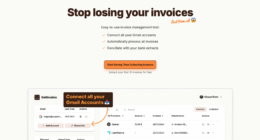Marketing project tracking software helps teams manage tasks, resources, and workflows efficiently. Popular solutions like ClickUp, Asana, and Monday.com offer features including visual boards, timeline tracking, and team collaboration tools. These platforms typically cost between $7-40 per user monthly and provide customizable templates, real-time communication, and performance analytics. Key factors in choosing software include user-friendly interfaces, mobile accessibility, and scalability. Understanding the core features leads to better implementation success.
Quick Overview
- Popular solutions like ClickUp, Asana, and Monday.com offer comprehensive marketing project tracking starting from $7-11 per user monthly.
- Task management systems enable teams to create, assign, and monitor marketing activities through visual boards and timelines.
- Project tracking software centralizes team communication, file sharing, and collaboration while providing real-time updates.
- Built-in reporting features deliver customizable analytics dashboards to track marketing KPIs and measure campaign performance.
- Integration capabilities allow connection with existing marketing platforms and automation tools for streamlined workflow management.
Understanding the Core Features of Marketing Project Tracking Tools
Understanding the core features of marketing project tracking tools starts with recognizing the essential components that drive successful campaign management.
These tools combine five fundamental capabilities that streamline marketing operations:
- Task management systems allow teams to create, assign, and monitor project activities through visual boards and timelines.
- Resource management features help allocate team members and track time usage effectively.
- Collaboration tools centralize communications and enable real-time file sharing.
- Reporting functions generate customizable analytics and KPI tracking dashboards.
- Integration capabilities connect with existing marketing platforms while allowing process customization.
Popular solutions like Gantt charts help teams visualize project timelines and dependencies effectively.
Each component works together to create a thorough system that helps marketing teams stay organized, meet deadlines, and achieve campaign objectives. Modern software solutions like monday.com and Wrike start from $8-10 per user monthly, making them accessible for organizations of various sizes.
The right combination of these features guarantees smooth project execution and clear performance measurement.
Top Software Solutions for Marketing Project Management
With a clear grasp of core features in mind, marketing teams can now explore the leading software solutions that bring these capabilities to life.
Marketing teams equipped with essential feature knowledge can confidently navigate the software landscape to find their perfect project management match.
The market offers diverse options to suit various needs and budgets:
ClickUp and Asana stand out with free plans and affordable paid tiers starting at $7 and $10.99 per user monthly, respectively. Both platforms excel in task management and workflow automation. Asana’s task dependencies help teams maintain streamlined workflows and efficient project tracking.
Monday.com provides 200+ industry-specific templates and collaborative whiteboards, starting at $8 per user monthly. Marketing automation integration enables seamless connectivity with existing CRM and campaign tools.
For teams seeking all-encompassing solutions, ProProfs Project offers in-depth analytics and pre-made templates at $39.97 monthly, while Wrike delivers AI-powered features and automated task delegation.
Each platform brings unique strengths to marketing project management, from resource tracking to client communication tools.
Maximizing Team Efficiency With Project Tracking Systems
Modern marketing teams can dramatically boost their productivity when they implement robust project tracking systems. These tools deliver measurable improvements, reducing task completion time by up to 30% while increasing team productivity by 25%.
Project tracking systems transform team efficiency through:
- Centralized task management with clear assignments and deadlines
- Real-time collaboration features for seamless communication
- Visual tracking tools like Kanban boards and Gantt charts
- Automated workload balancing to prevent team burnout
- Data-driven insights for better decision making
Resource allocation tools enable seamless file sharing and budget monitoring across digital marketing campaigns. The impact on project success is significant, with organizations seeing an average 20% increase in ROI and 15% reduction in project costs. Companies that implement daily stand-up meetings find they can address challenges more quickly and maintain better alignment across team members.
Through features like Critical Path Analysis and Work Breakdown Structure, teams can prioritize essential tasks while maintaining clear accountability throughout the project lifecycle.
Selecting the Right Marketing Project Software for Your Team
Choosing the right project tracking software stands as a critical decision for marketing teams seeking to streamline their operations. Success depends on carefully evaluating team needs and matching them with appropriate software capabilities.
Teams that implement effective project management solutions are 356% more likely to achieve success in their marketing initiatives. Leading platforms like marketing automation tools help teams maximize efficiency through calendar organization and content management features. Teams should prioritize solutions that offer essential marketing-specific features like campaign tracking, asset management, and customizable workflows. The software must also integrate smoothly with existing tools while providing robust security measures to protect sensitive data.
Key selection criteria include:
- User-friendly interface for quick adoption
- Mobile accessibility for remote work
- Scalability to accommodate team growth
- Strong collaboration features
- Extensive reporting tools
- Reliable customer support
Before making a final decision, teams should thoroughly assess their workflow requirements, test potential solutions through free trials, and gather feedback from team members who will use the software daily.
Best Practices for Implementing Project Tracking Solutions
Successful implementation of project tracking solutions requires a methodical, well-planned approach that goes beyond simply installing new software. Organizations must first establish clear, measurable goals that align with their marketing strategy and communicate these objectives to all stakeholders.
Key implementation best practices include setting up robust tracking systems with real-time monitoring capabilities, fostering team collaboration through centralized communication platforms, and optimizing resource allocation through careful workload management. Regular team huddles help maintain transparency and collective ownership throughout the project lifecycle. Marketing automation tools can enhance efficiency by streamlining repetitive tasks and scheduling activities.
Teams should utilize Gantt charts and customizable dashboards to maintain visibility of project progress while implementing automated alerts for approaching deadlines.
Continuous improvement remains essential, with regular post-project reviews and data analysis helping teams refine their processes. Regular training sessions guarantee team members stay proficient with the software’s features and can maximize its benefits.
Frequently Asked Questions
How Long Does It Typically Take for Teams to Fully Adopt New Software?
The time required for teams to fully adopt new software varies based on complexity and organizational factors.
Simple tools typically take 2-4 weeks, while basic software requires 3-6 months for complete adoption.
More complex enterprise systems can take 1-2 years.
Success depends on several factors, including training quality, leadership support, and user engagement.
Cloud-based SaaS solutions generally see faster adoption rates, averaging 30-90 days when properly implemented with strong change management practices.
Can Marketing Project Software Integrate With Legacy Systems From Different Vendors?
Like a master key opening many doors, modern marketing project software can indeed integrate with various legacy systems.
Through APIs, iPaaS solutions, and database connectors, these platforms can sync with older vendor systems.
While technical challenges exist, most software vendors provide integration tools and documentation to streamline the process.
Success depends on factors like system compatibility, data formats, and security protocols, but integration is generally achievable with proper planning and expertise.
What Security Measures Protect Sensitive Marketing Campaign Data From Unauthorized Access?
Marketing campaign data is protected through multiple layers of security measures.
These include strong access controls with multi-factor authentication and role-based permissions, robust data encryption both at rest and in transit, and thorough network security protocols.
Organizations implement intrusion detection systems and regular security audits to monitor for unauthorized access attempts.
Additionally, compliance with data protection regulations guarantees systematic protection of sensitive campaign information through standardized security practices.
How Often Should Companies Upgrade Their Marketing Project Management Software?
With 91% of users rating marketing automation as “very important” to online success, companies should evaluate their project management software every 8-12 months.
This timing aligns with industry benchmarks and allows organizations to capitalize on emerging AI capabilities and new features.
Companies experiencing any of these triggers should consider upgrading sooner: significant team growth, workflow bottlenecks, integration issues with other tools, or when missing key functionality needed for campaigns.
Are There Industry-Specific Templates Available for Different Types of Marketing Projects?
Yes, industry-specific marketing templates are widely available across different sectors.
These templates typically include:
- Digital Marketing: Social media calendars, email sequences, and content schedules
- Event Marketing: Conference planning checklists and sponsor management tools
- Product Launch: Cross-functional timelines and media kit formats
- Agency Management: Client onboarding forms and reporting dashboards
Each template type is customized to address unique industry requirements while maintaining flexibility for company-specific modifications and branding elements.
Conclusion
Like a skilled conductor coordinating an orchestra, marketing project tracking software harmonizes team efforts and keeps campaigns on tempo. Studies show teams using these tools complete projects 28% faster than those relying on manual methods. By carefully selecting and implementing the right software solution, organizations can transform chaotic marketing workflows into streamlined symphonies of productivity, ensuring every campaign hits the right notes at precisely the right time.








